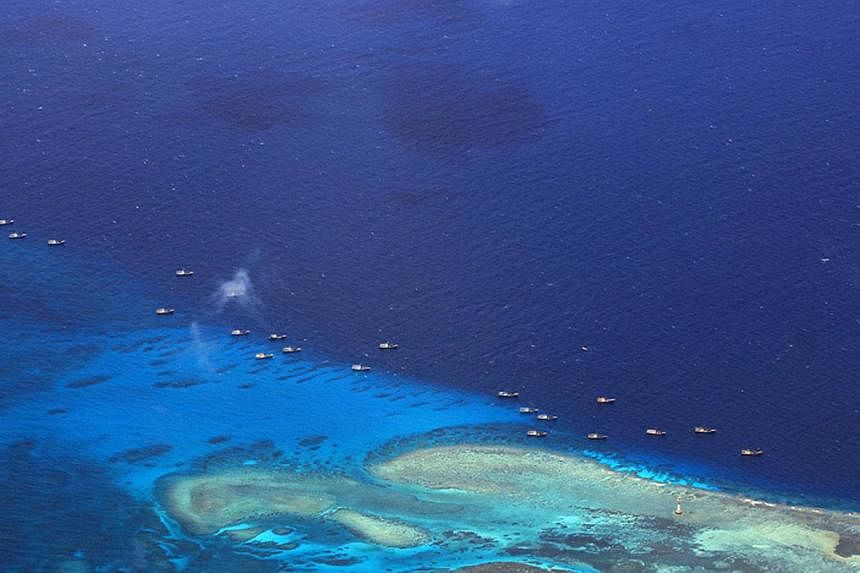BEIJING (Reuters) - China denounced the Philippines on Sunday for putting it under political pressure with an international arbitration case over disputed waters, and refused again to participate a week ahead of a deadline to respond in the case.
In a position paper, China outlined its arguments against the jurisdiction of the Permanent Court of Arbitration at The Hague to take up the case filed by the Philippines last year that could have far-reaching implications for China's extensive claims over the South China Sea.
"Its underlying goal is not ... to seek peaceful resolution of the South China Sea issue, but rather, by resorting to arbitration, to put political pressure on China, so as to deny China's lawful rights in the South China Sea through the so-called 'interpretation or application' of the Convention," China's Foreign Ministry said.
China has long said it would not participate in the arbitration proceedings, insisting it would resolve disputes bilaterally.
China lays claim to almost the entire South China Sea, rejecting claims to parts of it from Vietnam, the Philippines, Taiwan, Malaysia and Brunei in one of East Asia's most intractable disputes. China has a separate dispute with Japan over islands in the East China Sea.
The tribunal has given China until Dec 15 to reply in the case.
China's participation is not required, since the tribunal is not meant to resolve the dispute but address the legal validity of China's "nine-dash line" as well as the classification of features such as the Scarborough Shoal, under the United Nations Convention on the Law of the Sea to which China is a signatory.
China's claim is represented on its maps by the nine-dash line that loops far south from its coast.
A ruling in the Philippines' favour could undermine parts of China's claim to the sea, which critics say has an obscure basis under the Convention.
"There are still people with ulterior motives, who take a one-sided or distorted view regarding international legal conventions, so as to accuse China or insinuate that China does not respect international law, and falsely claim China is challenging international conventions," Mr Xu Hong, chief of the Legal and Treaties Department of the Foreign Ministry, said in an interview posted on the ministry website.
He added that the paper was not published with the deadline in mind.
In October, the Philippines said it had stopped development work in the sea because of the impact it might have on the arbitration case.

